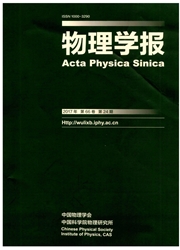

 中文摘要:
中文摘要:
舆论形成是个体因素与外部影响共同作用的结果.个体因素包括个体理性的认知与非理性的情绪因素,外部影响则包括文化、认知以及行为模式的作用和社会网络上个体之间的影响,而文化、认知等背景因素往往与空间地域相关联.本文通过构建一个同时具有空间位置特征与小世界特征的无标度网络以及网络上的Ising模型,全面考察了空间与网络共同作用对舆论形成的影响,研究了舆论形成中的相变行为,重点分析了与区域文化或认知背景以及与整体社会情绪等相关的参数在舆论形成过程中的作用.计算机数值模拟结果表明,区域间的认知背景差异足够大时,会导致公共舆论形成明显的区域性特征,此时,空间因素和社会网络具有同样的影响强度时,会有利于全局一致舆论的形成.同时,非理性因素引发的社会情绪可以通过提高个体影响力及降低背景差异使得一致性公共舆论快速形成.
 英文摘要:
英文摘要:
Opinion formation is the result of co-evolution of individual behavior and environment. Individual behavior is determined by its rational cognition and irrational emotion. Environment includes culture, cognitive and behavioral patterns and social interactions. Culture and cognitive patterns are usually related to the spatial factors. In this paper, a social network with geographical factors is con- structed. Together with the Ising model in networks, the effects of both spatial and social factors on opinion formation are investigated. The phase transition in the process of opinion formation is studied. The results indicate that both spatial cultural background and global preference for public opinion are crucial to opinion formation.
 同期刊论文项目
同期刊论文项目
 同项目期刊论文
同项目期刊论文
 期刊信息
期刊信息
